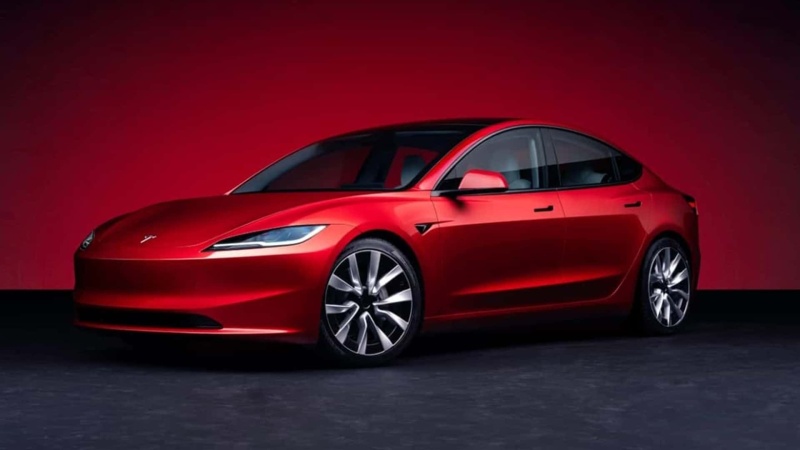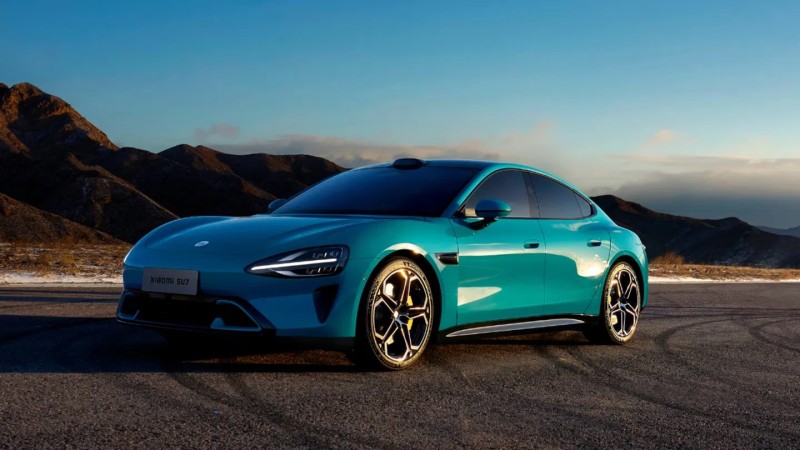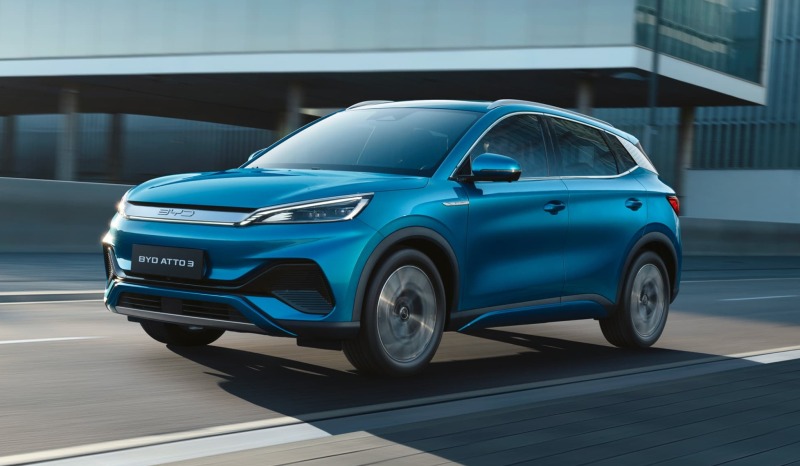Tesla's sales champion was taken away by BYD, Model 3 and Model Y lost their sales position in multiple regions
 AshleyFeb 26, 2025, 04:54 PM
AshleyFeb 26, 2025, 04:54 PM
【PCauto】A recent report from market research firm CounterPoint Research reveals that global BEV sales in Q4 2024 grew by 12% year over year—with the Chinese market continuing to dominate, accounting for 60% of the total global share. During this critical period, BYD has overtaken Tesla to claim the top spot among global pure EV brands, and Xiaomi SU7 has outsold Tesla Model 3 in China. These developments undoubtedly signal a wake-up call for Tesla, as indicators of its waning brand strength become increasingly apparent.

Fading Product Advantages and Stagnated Sales Growth
Tesla Model 3 and Model Y, once the crown jewels of Tesla’s lineup, enjoyed remarkable success in global markets—with Model Y even outstripping Corolla’s annual sales. However, as competition intensifies, the distinct advantages of these models have diminished, hampering their capacity to drive further sales growth.
Take the Model 3, for example. Its reliance on lithium iron phosphate batteries—known for their lower energy density—has resulted in a range that struggles to keep pace in a market where range is a paramount concern. Moreover, the overall configuration of Model 3 no longer retains its initial edge, and its cramped rear space has frequently drawn criticism for compromising passenger comfort. Despite Tesla’s repeated price cuts intended to stimulate demand, in an increasingly competitive environment, such price wars have had only a limited impact and have gradually eroded its cost-performance advantage.

Model Y is similarly challenged. In the Chinese market, an ever-expanding array of competitors is launching models that directly challenge Model Y’s appeal, steadily eroding its market share. With Xiaomi poised to launch a second SUV targeting Model Y and rivals like NIO and Zeekr introducing comparable offerings, competitive pressures are mounting. Meanwhile, Tesla’s sluggish upgrade cycle for Model Y leaves it ill-equipped to counter this surge of competition.

Declining Global Market Share and Regional Setbacks
China, once Tesla’s largest EV market, now presents a very different picture. The fact that Xiaomi SU7 outsold Model 3 in Q4 2024 is but one symptom of broader challenges facing Tesla in China. Domestic brands, such as BYD and Geely, are rapidly advancing in the electric vehicle sector—reinforcing their competitive edge through continuous technological innovation and robust cost management. BYD has made impressive progress in battery technology and autonomous driving, while its diversified product portfolio caters to a wide range of consumer needs. Simultaneously, Geely’s brands, including Zeekr and Galaxy, have recorded an 84% year-over-year surge in pure electric vehicle sales.

In January 2025, Tesla suffered a significant setback in Europe, with sales plummeting to just 9,945 vehicles—a 45% year-over-year decline—in stark contrast to a 37% overall growth in the European EV market. In Germany, Tesla’s sales nosedived by 59%, reaching their lowest level since 2021. Furthermore, following Elon Musk’s appointment as the Director of the US Department of Government Efficiency in January 2025, his increased political involvement has provoked notable backlash among European consumers.
Meanwhile, Chinese automakers like BYD and NIO have emerged as formidable competitors in Europe, rapidly capturing market share with their robust product portfolios and more competitive pricing. Tesla’s “price butcher” strategy in Europe appears to have backfired—frequent price cuts have not only failed to boost sales but have also tarnished its brand image.

Back in the US, Tesla is contending with fierce competition as well. Traditional automotive giants such as Ford and GM have made significant strides in their electrification efforts, unveiling a range of competitive electric vehicles. Models like Ford’s F-150 Lightning electric pickup and GM’s Chevrolet Bolt EV have resonated well with consumers. With these domestic rivals benefiting from higher brand recognition, more established sales channels, and stronger after-sales networks—amplified by supportive government policies—Tesla’s growth in market share within its home market is under serious pressure.

CounterPoint Research’s Q4 2024 BEV market report paints a stark picture: Tesla faces severe challenges across multiple key regions, and the signs of a declining brand presence are becoming increasingly pronounced. Once a pioneer that harnessed technological innovation and a powerful brand image to dominate the electric vehicle landscape, Tesla now finds itself at a critical crossroads. Unless it can swiftly address its product shortcomings, revitalize its brand image, and proactively counter mounting global competition, Tesla’s future growth prospects remain highly uncertain.
If any infringement occurs, please contact us for deletion
Trending News

Perodua Myvi and Bezza may undergo major upgrades in 2026
After the update, the Bezza will no longer be just a low-cost alternative but a core model in the Perodua system with greater market competitiveness and brand premium potential. The upgrade of the Myvi is not to be unconventional but to strengthen the brand and market, ensuring that the Myvi continues to maintain its irreplaceable position in the new round of product competition.

Perodua Traz VS Ativa, which one is more worth buying?
Traz, as a newly launched mid-sized SUV, offers more spacious room and mainstream power compared to small SUVs, but its pricing appears slightly higher than that of Ativa. Ativa, on the other hand, is Perodua's long-time best-selling small SUV with more affordable pricing and a balanced combination of power and tech features.

Will the Toyota Yaris Cross come to Malaysia? If it comes, how much will it sell for?
The launch of Perodua Traz indicates that the market size of small SUVs in Malaysia has been expanding in recent years. However, the question naturally shifts back to Toyota. As a brand with the most comprehensive product line and a strong foundation in both the SUV and hybrid sectors, will Toyota choose the Yaris Cross to participate in this small SUV competition?

Perodua Traz VS Toyota Yaris Cross, where does the Traz fall short?
Before the official launch of the Perodua Traz, market expectations were actually very high because it shares the same DNGA platform as the Toyota Yaris Cross. However, sharing the same platform does not equate to the same experience, and the Traz's final performance has indeed been disappointing. Perhaps it is precisely because of the delayed launch that it has almost no competitiveness in the current competitive environment.

Perodua Traz 2025:Spec, Price and Features
Perodua Traz has been officially launched in Malaysia. It is a B-segment five-seater SUV built on the DNGA platform. Compared to the Yaris Cross, which emphasizes brand and quality, the Traz comes with a localized rate of about 95%, offering a more friendly price and practical features.
Popular Cars
Model Year
Car Compare
Car Photo

